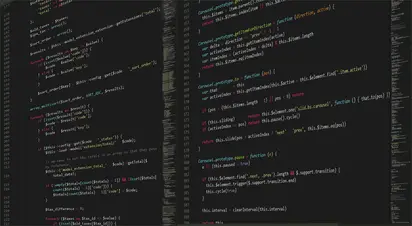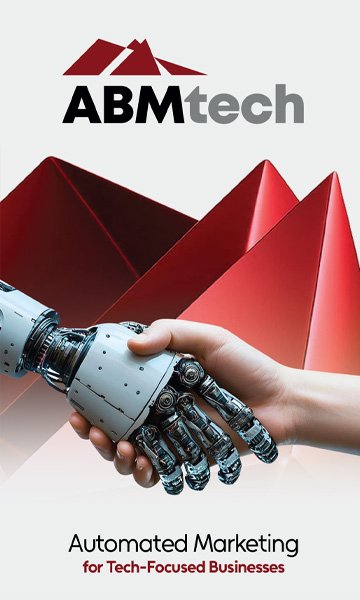
In recent years, we have witnessed a rapid evolution of technology, with new inventions redefining how firms operate. As we approach 2025, from artificial intelligence and quantum computing to blockchain and neurotechnology, these emerging trends are poised to revolutionise the world. Businesses that wish to remain competitive and relevant must recognise and prepare for these changes.
This blog post will explore these groundbreaking technologies and their potential impact on businesses. By understanding these trends and their potential applications, we can prepare for the future and capitalise on the opportunities they present.
Empowering Business By Emerging Technologies 2025 And Beyond
Over the next five years, several pivotal technology trends are expected to gain traction and drive substantial changes across multiple industries. These trends span diverse fields, including artificial intelligence (AI), the Internet of Things (IoT), 5G networks, blockchain, and sustainable technologies. Let’s discuss them individually:
Artificial Intelligence (AI)
AI has already made significant strides, and its impact is only set to grow. In 2025, we can expect to see AI-powered solutions across various industries:
- Generative AI: This technology will enable the creation of realistic and creative content, including text, images, and music.
- AI-Driven Automation: AI-powered automation tools will streamline processes, reduce human error, and increase efficiency.
- AI-Enhanced Decision Making: AI algorithms will analyse vast amounts of data to provide valuable insights and support informed decision-making.
- Natural Language Processing (NLP): Empowering machines to understand and respond to human language, leading to more intuitive and human-like interactions.
Decentralisation and Blockchain
Blockchain, the technology behind cryptocurrencies, has the potential to revolutionise industries beyond finance. Decentralisation and blockchain technology are transforming industries by enabling secure and transparent transactions. Key trends in this area include:
- Decentralised Finance (DeFi): A new financial system that leverages blockchain technology to offer decentralised financial services.
- Blockchain-Based Supply Chain Management: Improving supply chain transparency, traceability, and efficiency.
- Decentralised Autonomous Organisations (DAOs): Autonomous organisations governed by smart contracts and community consensus.
- Secure Data Sharing: Blockchain offers a safe and decentralised way to share data, protecting sensitive information.
- Smart Contracts: Automated contracts executed on the blockchain can streamline processes and reduce the need for intermediaries.
The Rise of IoT
The Internet of Things (IoT) has been a game changer, connecting gadgets and facilitating data flow across multiple platforms. By 2025, the IoT ecosystem is estimated to have grown to over 75 billion devices. The IoT continues to expand, with billions of devices connected to the internet. In 2025, IoT will drive innovation in various sectors:
- Predictive Maintenance: Smart sensors in production can foresee the need for machinery maintenance, reducing downtime and increasing productivity.
- Smart Cities: IoT-enabled intelligent cities will offer improved infrastructure, energy efficiency, and public safety.
- Industrial IoT (IIoT): IoT devices in manufacturing and industrial settings will optimise operations, reduce downtime, and enhance productivity.
- Consumer IoT: Smart wearable devices will provide personalised experiences and convenience.
- Enhanced Connectivity: The Internet of Things will introduce a new degree of interconnection into daily operations, making processes faster, more reliable, and more customer-centric.
Cloud and Edge Computing
Cloud computing remains dominant, enabling businesses to scale their operations and reduce infrastructure costs. In 2025, we can anticipate:
- Enhanced Performance and Reduced Latency: Integrating cloud and edge computing can improve performance and reduce latency.
- Real-time Data Processing: This hybrid approach is ideal for industries that rely on real-time data, such as healthcare, manufacturing, and telecommunications.
- Optimised Data Processing: By combining centralised cloud storage with local edge processing, businesses can achieve faster and more efficient data processing.
- Cost-Effective Solutions: This hybrid approach can help businesses save costs while improving data processing speed and accuracy.
- Improved Service Reliability: The combination of cloud and edge computing enables more responsive and reliable services.
Cybersecurity
As cyber threats evolve, cybersecurity will remain a top priority for businesses. In 2025, we can expect:
- Advanced Cybersecurity Solutions: Emerging technologies like AI and machine learning will be used to detect and respond to cyber threats more effectively.
- Zero-Trust Security: A security model that assumes no one or nothing is inherently trustworthy.
- Increased Focus on Data Privacy and Compliance: Stricter regulations and heightened awareness of data privacy will drive organisations to implement robust data protection measures.
Quantum Computing
Quantum computing has applications in various industries, including finance and healthcare, where it can perform complex computations at unprecedented speeds. Here’s how quantum computing will help tech companies revolutionise in 2025:
- Accelerated AI and Machine Learning: Quantum computing can significantly accelerate the training and development of AI models, leading to more sophisticated and intelligent systems.
- Financial Modeling and Risk Assessment: Quantum computers can perform complex financial calculations and simulations, enabling more accurate risk assessments and investment strategies.
- Supply Chain Optimization: Quantum computing can optimise complex supply chains, reducing costs and improving efficiency.
- Climate Modeling: Quantum computers can accurately model climate systems, helping us understand and address climate change.
No-Code Revolution
No-code platforms are poised to revolutionise the game by allowing non-technical users to construct applications and automate workflows. This approach will bridge the gap between technical and business teams, fostering creativity and lowering development costs. By 2025, no-code solutions will accelerate and adapt corporate processes, providing greater flexibility in responding to market demands. Some of them include:
- Democratising Development: No-code platforms empower non-technical users to create applications and automate workflows.
- Accelerating Innovation: These platforms reduce development time and cost, enabling businesses to respond quickly to market changes.
- Leveling the Playing Field: Small businesses can compete with larger organisations by leveraging no-code tools.
Privacy-Focused Future
As privacy concerns rise, the era of third-party cookies is ending, with companies like Google announcing plans to phase out cookies by the end of 2024. This shift will have significant implications for marketers and advertisers. Here’s what we can expect by 2025:
- The End of Third-Party Cookies: The era of third-party cookies is coming to a close, leading to significant changes in digital marketing.
- Emerging Technologies: Federated Learning of Cohorts (FLoC) is an emerging technology that could replace traditional tracking methods.
- Consumer Privacy and Trust: Prioritising data privacy and transparency can build consumer trust and enhance brand reputation.
- Competitive Advantage: Businesses that adapt to the changing privacy landscape can gain a competitive edge.
Rise of Cognitive Enhancement
Neurological enhancement represents a fascinating frontier in human-machine interaction, utilising technologies that can read, decode, and even influence brain activity. Here’s what we can expect in 2025 and beyond:
- Brain-Machine Interfaces: BMIs and BBMIs can read, decode, and influence brain activity. These technologies have the potential to enhance human capabilities.
- Future of Work: Cognitive enhancement tools can improve productivity and creativity.
- Mass Adoption: By 2030, many knowledge workers may use cognitive enhancement technologies, as predicted by Gartner.
- Human-Machine Collaboration: BBMIs will foster closer integration between humans and machines.
- Personalised Development: Individuals can use BBMIs to enhance their skills and abilities.
Reshaping Industries & Businesses
As we approach 2025, the technological landscape is rapidly evolving. AI, IoT, Blockchain, and Quantum Computing are set to reshape industries and redefine the future of work. Businesses should position themselves for success in an increasingly technologically driven future by focusing on essential areas such as staff development, IT infrastructure upgrades, and a commitment to transparency and sustainability. By embracing these emerging technologies, businesses can unlock new opportunities, streamline operations, and gain a competitive edge. However, considering the potential societal and environmental impacts, it is crucial to navigate these advancements ethically and responsibly.





